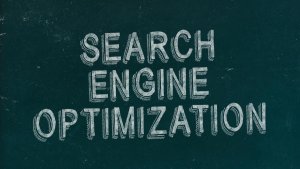[vc_row][vc_column][ultimate_heading main_heading=”Tips For Writing A Brilliant Post Optimised For Search”]Content Creation for Business[/ultimate_heading][ultimate_spacer height=”40″ height_on_tabs=”40″ height_on_tabs_portrait=”40″ height_on_mob_landscape=”30″ height_on_mob=”30″][/vc_column][/vc_row][vc_row][vc_column][vc_column_text]Do you need more eyes on your business ?
Do you need to get people looking, reading and talking about your products and services ?
Or do you simply need more visitors to your website ?
When you create content for your website, either images, blog posts or a new product/service you have to keep in mind how those pieces of content are going to be found.
Yes sharing the articles, the pages through social media and friends will get some eyeballs on the content, it won’t however help a lot of new customers, clients and readers searching for your particular service discover your website.
In the following steps I will outline how to plan your new article/post while keeping search engine optimisation in mind.[/vc_column_text][/vc_column][/vc_row][vc_row][vc_column][info_list font_size_icon=”24″ eg_br_width=”1″][info_list_item list_title=”Choose the right keywords for your article” list_icon=”Defaults-check”]The best way to get started with this is to sit down and write out a list of keywords/phrases you think would be used by people looking for you in search.
Then take this list of keywords to Google’s Keyword Planner or Bing’s keyword tools and see what has the best search volume each month.
Search Volume is the amount of people searching for that particular keyword phrase in your area each month. Meaning people are looking for information on that topic.
These tools will also indicate the amount of Competition that you have to get your content seen. Competition is literally every other business with content targeting those keywords in search. The more keyword competition the harder it is to get your content to rank high in search results.[/info_list_item][info_list_item list_title=”Content Length” list_icon=”Defaults-check”]The length of the your post is something people writing content struggle with. And the answer to what the ideal length of a article or blog post should be when it is optimised for SEO is – It depends.
It depends on the subject matter, you also have to account for your target audience’s attention span, the message that you want to convey and the level of detail you need to deliver for people to understand your product or service.
Generally for a short post look at between 300 to 900 words and for more detail or long form content aim for 1200 to 2000 words.
Again this is dependant on the factors mentioned up top. But I will point out that long form content out performs short form content and the more information that you provide on the subject the more you generate interest and the longer a reader stays on the site.
That metric, time on site is especially important for bloggers and people building their reputation as an expert or knowledgeable person in their field.
When writing the content ensure that the information is broken down into easily digestible chunks of writing. Short paragraphs with plenty of sub-headings to highlight the next paragraphs.
Images are always brilliant if used wisely and are relevant to the topic. Graphs or infographics are also perfect for presenting data in an easy to read format.[/info_list_item][info_list_item list_title=”CTR – Meta-Descriptions and Meta Titles” list_icon=”Defaults-check”]Having the best possible title and meta description shown in search results for your keyword is an excellent way to get people to click through to your article.
The Title needs to appeal to potential readers while the description needs to show you provide the information on the topic and encourage them to Click the search result to keep reading.
The title needs to grab their attention. What works in one industry will not always work in another.
Experiment – Remember when I mentioned Metrics up above ? Well this is where that comes into its own. By looking at which of your articles gets more clicks, which ones get more organic search results you can begin to find what style and type of title and description works.
Certainly go research your competitors, see what they are doing in your space, look at what people are reading and sharing and then go make your own. (don’t straight copy because that’s never a great way to get attention on your blog)
Descriptions are also extremely important and extremely difficult to get right. They need to contain your Keyword and entice readers to click through to your whole article. Again experiment, try different things, phrasing, syntax structure and Call To Action wording.[/info_list_item][info_list_item list_title=”Hierarchically Structure of Content” list_icon=”Defaults-check”]The way in which your content is structured also sends search engines information about what you consider to be the most important information in that page.
For example headings are structured using html tags like this <h1></h1> <h2></h2> <h3></h3><h4></h4> <h5></h5>
These tags run in descending order. H1 being the largest and biggest font in a page. This is used for your contents Title.
You then go through your written content and break it down into H2, H3 and H4 sections. The subheadings mention earlier on.
The in your text you can highlight the keyword phrases and partial keywords in bold to increase the effectiveness in the article and make them stand out more in importance for the reader and for SEO purposes.
When including images in the content always have the ALT tags for the image contain your keywords and match the title of the image as well. Even if the title of the image is not displayed.[/info_list_item][info_list_item list_title=”Linking and Citations” list_icon=”Defaults-check”]Links and citations are mentions of your business online that search engines find and use to rate and rank your website.
Links are clickable, they lead from one website or page to another. These website links can either be external or internal.
External links are links from another domain/website that, when clicked on, lead back to a page on your website. These types of links are important, because they show that your business is known and that the information or content on that page is relevant and important enough for another website to link to.
External website links are a way for your businesses website to show that it has a reputation, and that your content is good enough to send people to. The anchor text, the writing that is used show the link back to your website page, is also important. The type of words here directly impact how search engines rank your page.
For example if a anchor text says “Click here for news on boats” and the page that it leads too is all about cars, then that link, that anchor text isn’t relevant and can cause you to be ranked lower due to that.
Internal Links are links that lead from one page of your website to another. For example, a link that says “contact us” on your about page that leads to a contact form or a contact page is an example of an internal link. This links show search engines what are often the most important pages on your site. They can carry a lot of weight for internal ranking of pages.
Citations are mentions of your business on the internet. These can be suppliers to your business, online news articles or anything else that mentions the name of your business.
With both citations and links one of the most important things is the quality of the website page that the link or citation is listed on. If your link is mentioned on a page with high authority and good reputation then some of that authority flows to your page or business.
On the other hand if your page is mentioned on a site that is considered spammy, malicious or possibly fraudulent then that also takes away from your websites reputation and authority. It is a balancing act, to get enough links to your website that are of the right quality to help improve your sites search engine rankings, without accruing to many links on spammy sites.
[/info_list_item][/info_list][/vc_column][/vc_row]




